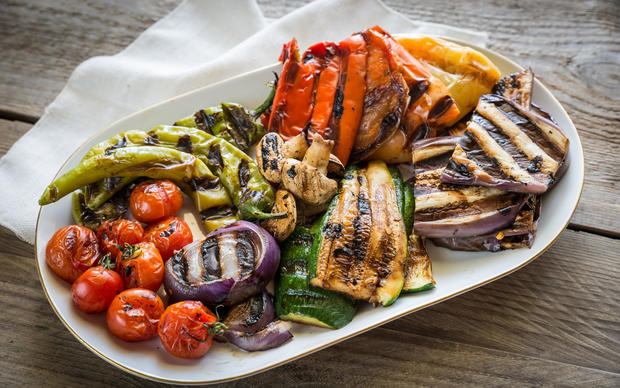Eating healthy isn’t about eliminating all your favourite foods, but rather incorporating them into a balanced diet. The best way to do this is to plan your meals ahead and stick to a rotation of meal ideas.
Choose a variety of vegetables, fruits and whole grains. Limit refined carbohydrates and high-fat dairy products.
As our understanding of the importance of gut health grows, experts stress the importance of having a happy, balanced gut microbiome.
But how can we improve our gut health? Experts point to a healthy, balanced diet as a vital component in supporting gut health — and offer a few specific suggestions to help.
“The answer is very simple on a general level. … It’s just a matter of quote-unquote ‘being healthier’ and eating a quote-unquote ‘healthy’ diet,” explains Dr. Aditya Sreenivasan, a gastroenterologist at Lenox Hill Hospital, though he admits that it can be “hard to to meet these criteria, especially living in this country.”
What exactly does this way of eating look like?
Focus on whole plant foods, says Dr. Shilpa Ravella, transplant gastroenterologist and assistant professor of medicine at Columbia University.
“Whole plant foods are incredibly important for gut health because they provide fiber for our gut microbes, and fiber is the most important nutrient for those gut microbes,” Ravella says.
Despite the importance of fiber in our diets, only about 5% of Americans meet the recommended daily amounts.
“In this country we unfortunately have a fiber deficiency,” she says. “We need to go beyond those recommended daily amounts for optimal gut health.”
Sreenivasan generally advises eating more fruits, vegetables and whole grains and less processed carbs like sugary drinks and processed and red meats. Recommendations may differ for people who have specific issues such as celiac disease, which could require a more specific diet.
“These are all like pretty simple concepts, but if you’re able to do those things, you’re improving your overall health, which includes gut health as well,” he explains.
Eating a diversity of plants is also a plus.
“When we think of different ways of eating plant-based foods, you could be eating potato chips and french fries, and those are technically still plants, but we need to be eating a great diversity of produce in the supermarket, a variety of whole grains, legumes and healthy fats as well, like nuts, seeds and avocados,” Ravella advises.
Variety is important because studies have shown that simply increasing increasing the range of plants consumed is linked to lower levels of bodily inflammation.
“One study, for example, that shows that simply by increasing the diversity of plants up to around 30 plants in a week can actually improve the diversity of the gut microbiome,” she adds.
Food preparation is the last key that’s often overlooked.
“It’s not something we focus on as much, but preparation techniques are actually quite important for that health because there is a difference between eating something that’s heavily fried versus eating something that’s lightly sauteed,” Ravella says.
There are also preparation methods that can be extra beneficial to your gut, like fermentation, which includes items such as kimchi and sauerkraut. This is because it’s not only prebiotic but also probiotic, she explains, meaning it helps add to the healthy microbes in your gut as well as provide food for them.
While the word “probiotic” is often associated with the commercially manufactured mixtures you can find on store shelves, these are a replication of bacteria naturally found inside our gut. Prebiotics, found in fruits and vegetables, are specialized plant fibers that act as food for the gut microbiome.
While a good part of a balanced diet, Sreenivasan doesn’t view fermented foods as a magic solution by any means.
“Those foods are good for you, (but) I don’t think that they’re a cure-all, per se,” he notes.
Source: cbsnews.com





















Add comment